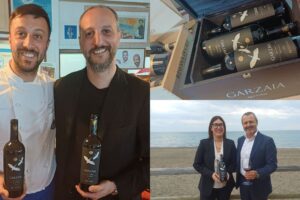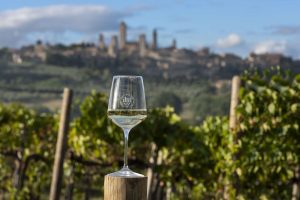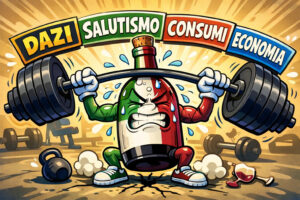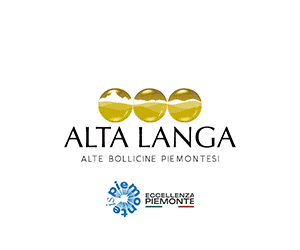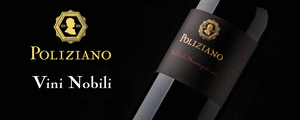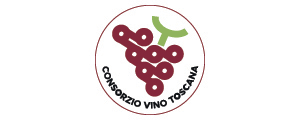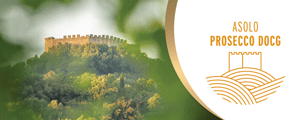Made-in-Italy agribusiness that needs to reaffirm its centrality in the world; wine that is not just a product, but “the soul of Italy that wins”; the new course of agriculture at the EU level, with an air that seems markedly changed and with a decidedly less ideological attitude on certain issues than in the recent past; the awareness that 2025 will be a crucial year for agriculture and for Italian wine, to be played well in the EU as well, looking at resources for the sector that must be at least maintained, but certainly not diminished; to a complex international context, where the issue of possible tariffs in the U.S. is looked at with apprehension, but also the management of the discussed EU-Mercosur agreement; the conviction that promotion, of agribusiness in general, and of wine in particular, through the CMO funds to be managed more and more by meeting the needs of businesses, is a fundamental aspect; a view on some regulations already in place, such as the one on alcohol free wines, strongly desired by businesses in the sector, but which left out PDO and PGI wines in order to safeguard the highest quality production; a clear opinion on others to be discussed, such as possible support for the uprooting of some vineyards to rebalance supply and demand, where the sticking point, for the Ministry, is that, eventually, the land from which a vineyard will be uprooted must remain only and exclusively for agricultural use. These are the many points touched on by Agriculture Minister Francesco Lollobrigida, in an interview with WineNews, between 2024, which recently closed, and 2025, which is beginning to take shape these days. And that starts precisely with a summary balance sheet of the past year.
“Italian exports of agri-food products are on their way to touch a record 70 billion euros this year (2024, ed.). Wine confirms its solidity. We are talking about a real pillar of our economy”, explains Minister Lollobrigida, “which is not just a number, but a reality made up of people: 107,175 operators, 333,000 employees, 135 Protection Consortia recognized by the Ministry and 12 Control Bodies. A supply chain that brings the best of our traditions to tables all over the world. The Ismea-Qualivita Report clearly tells us that quality and distinctiveness pay off, even in a complex period for global markets. A result that demonstrates the strength, resilience and ability of our territory and our excellence to withstand challenges. Let us continue on this path, with pride, because our wine is not just a product: it is the soul of Italy that wins”.
A political season has ended in Europe that, for the sector, saw farmers in the streets protesting low incomes and costs and impositions under the Green Deal and beyond, some of which have been retracted. A new season opens, with a different EU Commission and Parliament. What is the air in the EU, which sees the CAP as its most important policy and worth 30% of the European budget?
“With the new European Commission, I read a change of course on strategic issues, after years of ideological policies pursued by Timmermans (the former EU Commissioner for Climate and the Green Deal, ed.). Today there is a more serene dialogue with the European Union, which also sees us strengthened by the appointment of Raffaele Fitto as executive vice president. Agriculture Commissioner Hansen and Fisheries Commissioner Kadis are people with whom we have established a dialogue and already obtained important results on fishing, where for the first time Italy is able to be immune from further cuts that have bent our navies with a reduction in the last 10 years of 23%, and 50% in the last 30 years. The new proposals coming from the EU are a first signal in response to demands that European farmers have been bringing forward for years to regain the centrality they deserve as custodians of the land, guarantors of food quality and pillars of our food sovereignty. We will continue to work, including in Brussels, for the European Union to guarantee the principle of food sovereignty and defend our excellence and the income of our farmers and fishermen. We will strongly reiterate that dedicated resources must not decrease: at worst, they must be confirmed”.
Among the different sectors of the agri-food industry, wine is the spearhead, and although in a difficult context, exports, on the whole, seem to be holding up, although only sparkling wines are growing. How important is it, today, to support this sector, and how do you intend to do so, also because of the spin-offs it has and because of the driving force it has always represented for all made-in-Italy agri-food products?
“Last December 16, the EU Promotion Program 2025 was approved, with an allocation of 132 million euros to co-finance activities to promote sustainable and high-quality agrifood products of the European Union, both in the domestic market and globally. Of these funds, 17.1 million euros are dedicated to Geographical Indications (GIs) for campaigns aimed at the domestic market, with information and promotion measures that will be crucial, in particular, for the wine sector. Promotion abroad is a strategic lever for our agrifood system. Our entrepreneurs must show that they are ready for this challenge, holding firm to the principle that guides Italian choices: quality. Italy is recognized around the world as the Nation of quality, not quantity, and it is on this reputation that we must continue to build. A crucial role is played by international trade fairs, which we must enhance even more. There is growing attention to Italy and our products, from entrepreneurs who want to know and appreciate them. We need to take back our leading role in the global agri-food system, a sector in which Italy has too often failed to play a leading role. It is time to reaffirm our centrality and the value of our excellence”.
What signal was the presence of the new Commissioner of Agriculture, Christophe Hansen, at the latest meeting of the High Level Group Wine, for an industry as fundamental as the wine sector, but one that is constantly being challenged in many ways in Europe and around the world?
“The institutional presence of the new Commissioner Hansen at the December 16 Other Level Wine Group was a strong and important signal for the wine sector. We have initiated a debate for the entire supply chain for a more competitive CMO promotion program that is closer to the needs of producers”.
Among the many issues on the plate is also the management of wine production potential, with demand seemingly structurally declining. On the one hand, there are those who look to the instrument of uprooting, whether permanent or temporary, and, on the other, there are those who focus more on revising yields per hectare. How will the Ministry move in this direction?
“The Italian supply chain does not agree with indiscriminate uprooting measures that, in addition, could reduce resources for the other CMO wine instruments. The current discussion also includes the possibility of the use of national aid, while the Commission has introduced the possibility of examining options to use unspent funds from sectoral interventions to finance crisis management measures. Our sticking point is that uprooting should be conditional on maintaining agricultural use, this is to prevent the uprooted areas from being put to other uses such as, for example, the installation of solar panels”.
There is the issue of alcohol-free wines: you have always been against calling them that, then finally came the decree so much wanted by the sector. Are you satisfied, however, with the text reached?
“The decree on alcohol-free wine, which I signed in recent weeks, represents a response to the demands of our production chain. We are talking about a need that the sector has expressed: to regulate this product to make it a tool for greater competitiveness, especially in international markets. We wanted, however, to protect our excellence by excluding from the regulations PDO and PGI wines, symbols of our tradition and quality”.
Let’s talk about Ocm Vino: does the bureaucracy, net of the right controls on the promotion actions that are done, somehow risk channeling public funding to a few structured companies that have the skills and structures to manage the reporting in a painstaking manner? And isn't there also a risk that too much complexity will drive companies away from using these funds, which, on the other hand, if well used, are crucial for export support and promotion? What can be done about this?
“On the new Ocm Promozione Vino announcement, we simplified the procedure and intervened according to the needs of the supply chain. There is still a lot of work to be done, but we have achieved some very good results. It is necessary to continue the simplification process so that entrepreneurs can focus more on work than on bureaucracy”.
Looking at the world’s markets, are the duties promised by Trump in the U.S., the EU-Mercosur agreement, or the political economic instability in Europe more worrying for the fate of made in Italy agribusiness?
“The Italian economy must be able to deal with any emergency. It is clear that geopolitical instability can slow down exports. This is precisely why we must be ready and proactive to open up to new markets”.
Minister Lollobrigida, more generally, what do you hope for wine and Italian agriculture in 2025?
“2025 will be a crucial year to face the new challenges that await the Italian wine sector and to relaunch it with determination, focusing increasingly on foreign markets. Italian wine, a symbol of quality and diversity, still has enormous potential for growth, but to seize these opportunities it is essential to innovate the way we tell the story of our products, distribution and international promotion, without ever losing the deep connection with the territory, culture and traditions that distinguish us. To achieve these goals, it will be essential to find the right balance in the management of the Wine Promotion CMO, ensuring that the measures are truly calibrated to the needs of our entrepreneurs. Similarly, we must pragmatically address the issue of labels: there are indications that today represent critical issues, but these can be overcome with common sense and a shared approach. Italy must continue to champion a model that enhances its excellence and responds to global challenges with competence and vision”.
Copyright © 2000/2026
Contatti: info@winenews.it
Seguici anche su Twitter: @WineNewsIt
Seguici anche su Facebook: @winenewsit
Questo articolo è tratto dall'archivio di WineNews - Tutti i diritti riservati - Copyright © 2000/2026











